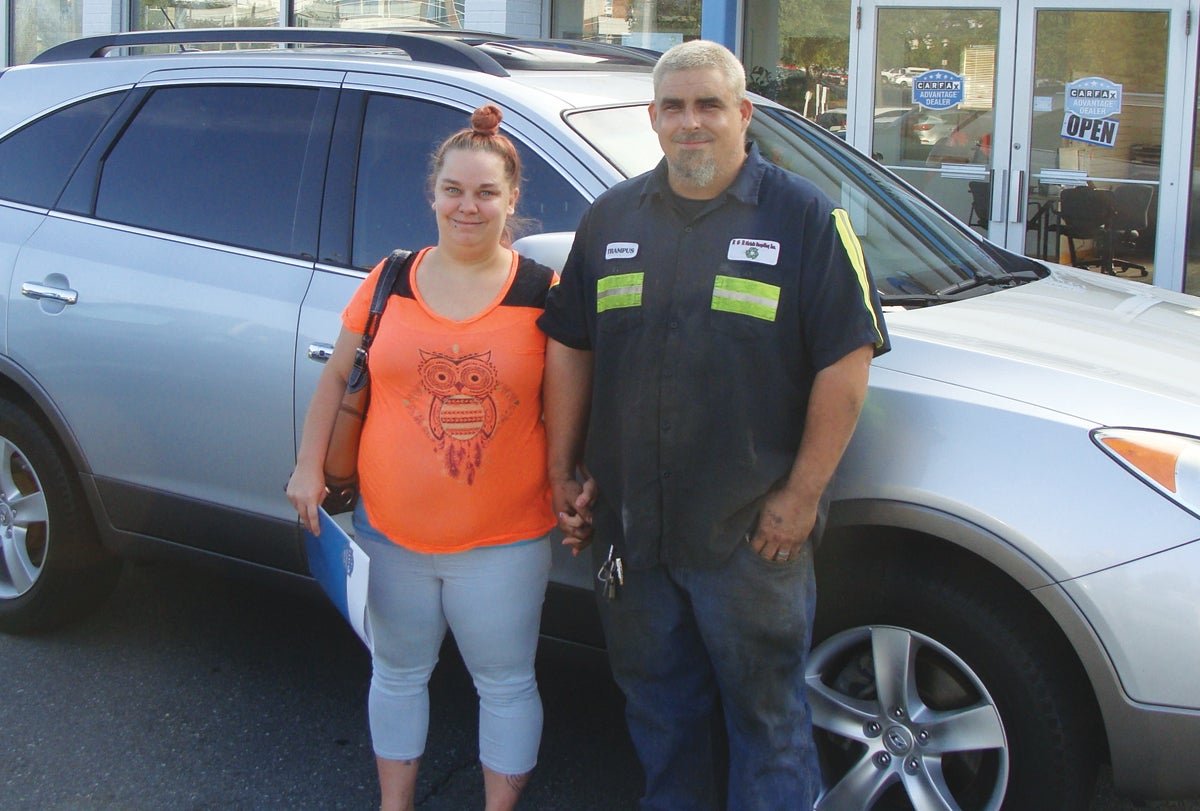A car can make a difference
Published 9:09 am Thursday, September 12, 2019

- The vehicle purchased through the CARes project helped Laura and Trampus Keen double their family income.
|
Getting your Trinity Audio player ready...
|
All it took was a car.
Within a week of buying one from The CARes Project, Laura Keen had a job.
That – and the counseling that goes along with the transportation – are helping Laura and her husband Trampus Keen and their three young children make ends meet.
The project, an idea that came out of the United Way of Davie County in 2016, has sold vehicles to eight low-income individuals to date, six in Davie.
“It gives a low-income family reliable transportation to get to and from work or to and from school, which is a basis for success in this world,” said Scott E. McLaughlin, chief executive of the project.
The Keens are the perfect example of how the program works, he said.
It took them three months to qualify, filling out “spending trackers” that shows every penny that goes into and out of the household.
CARes has trained professionals to help families make a budget, attend budgeting classes – all to help them reach a financial goal.
It is funded by the United Way, Davie Community Foundation, banks, businesses and individuals. CARes was recently certified by the U.S. Treasury as a community development financial institution, meaning they can apply for loan capital funding.
McLaughlin said the program is designed to get low-income people out of a cycle. “If a poor person goes to a lot to buy a car, they will be charged 29 percent interest,” he said.
He compared CARes to Habitat for Humanity, except for vehicles instead of houses. CARes holds the loans for three years until paid, which provides money back to offer more loans.
Loans through CARes are at eight percent interest, giving the project a three-year relationship with a family to help them manage finances.
Flow and Modern dealerships in Winston-Salem are offering good vehicles with warranties, often including free scheduled maintenance, he said. The Keen family doubled their income because they could buy a car.
McLaughlin said studies show that when people obtain a vehicle to get to a job, that within five years, two-thirds of those people are no longer dependent on government subsidies.
A minister, McLaughlin is grateful for the project that started with the Davie United Way.
“Melinda (Beauchamp, Davie United Way COO) knew the power of reliable transportation changing people’s lives,” he said.
“Without a vehicle, you can’t even go to apply for a job,” McLaughlin said. “If you are poor, you’ve got to borrow a car, or buy a junk car, which can break down and send you into a downwards spiral.”
He lets all clients know that the vehicles they are buying are purchased by the community, by people who believe in the program. “We tell them the whole community is investing in your lives. We will invest in people who are willing to invest in themselves.”
Learn more at www.thecaresproject.org.


